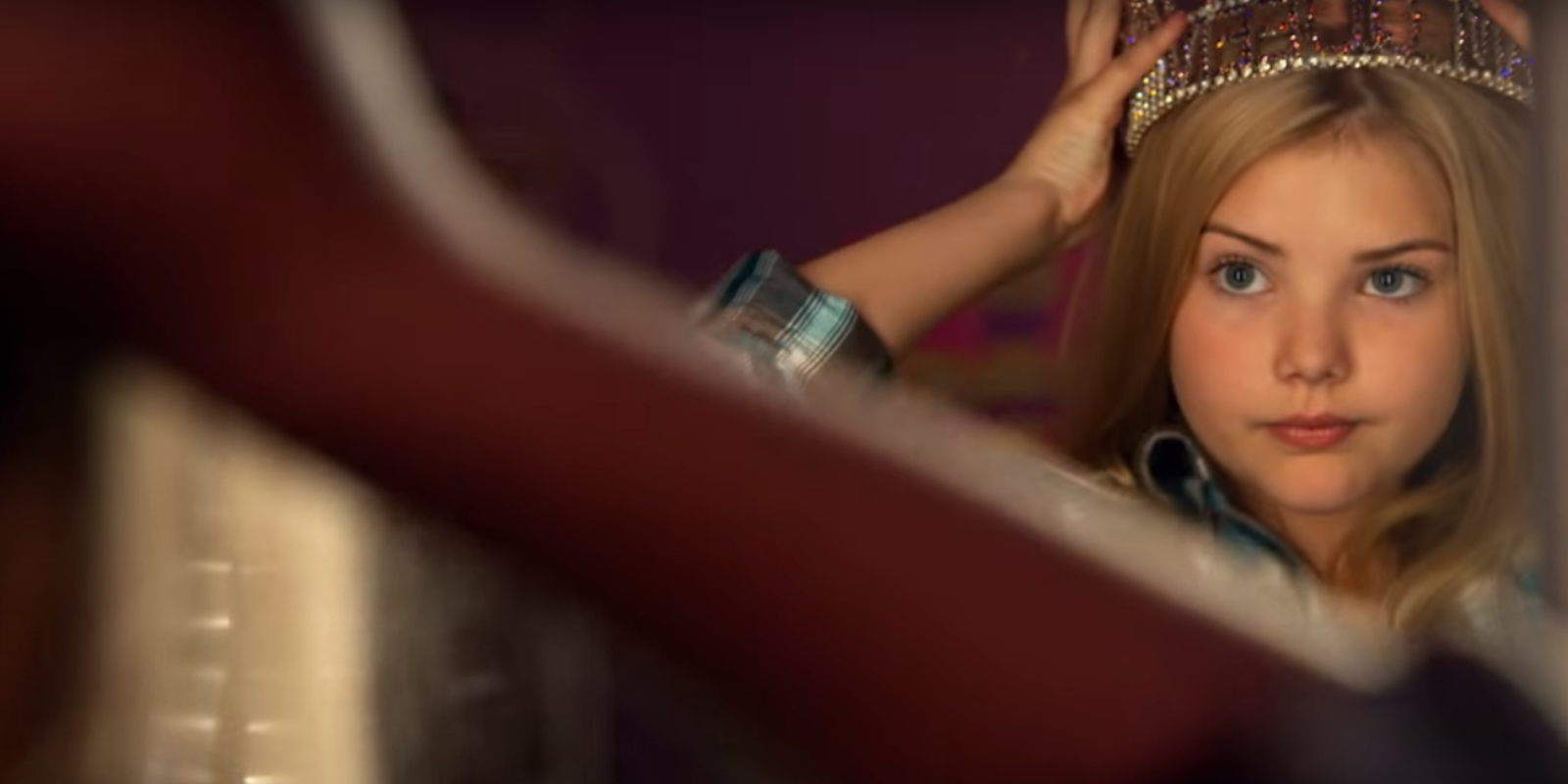“When there is no social mobility, the only social mobility you have is fictitious.”
Points like these, accompanied by scenes of selfies in front of sports cars and piles of money, might lead you to believe that Generation Wealth, Lauren Greenfield’s retrospective documentary spanning her 25 years exploring conspicuous consumption, is another story about how the internet is ruining everything. I’ll admit that I had prepared myself for another look at how Snapchat and Facebook are melting our collective brains.
What Greenfield offers is something far broader and more damning. It turns out that since she started looking at the excesses of the wealthy decades ago, things haven’t changed very much at all. It isn’t the fiction of social mobility we create and post on Instagram that is ultimately the problem. It is the fact that there is no social mobility in the first place—that the wealth is hoarded with decadent, unrelenting glee by those at the top—that is the cause of so much gold-plated suffering.
This problem has been a constant for the entirety of Greenfield’s career, and really, through all of human history.
Greenfield has spent her life looking at the world of the rich. She has interviewed southern pageant queens, corrupt hedge fund managers, ambitious female executives, and various scions of the rich and famous. She has observed a greater swathe of the 1 percent and their hangers-on than almost anyone in the world. In Generation Wealth, she looks back on her body of work, which includes The Queen of Versailles, Thin, kids+money, and various shorts and photography projects about wealth and culture, and tries to make sense of it all.
Instead of zeroing in on one particular bogeyman, like television, social media, or Wall Street to blame for the state of the world, she shows us the rot of late capitalism in all its diamond-encrusted glory and pulls at the strands looking for culprits. One subject blames the country leaving the gold standard. Another bemoans the “pornification of society.” A former investment banker blames Harvard, the “the West Point of capitalism.” Numerous subjects blame the Kardashians.
Few people blame themselves.

For her part, Greenfield, the dutiful anthropologist, resists any clear narrative. In her view, “social pathologies come and go but they always tell us about the time period in which they are produced.” She is more interested in what this particular moment of economic decay can tell us about humanity than pointing fingers. She isn’t here to judge whether the crown heads of Europe or the pharaohs of Egypt were more depraved than our current ruling class of hedge fund managers, timeshare tycoons, and Instagram brand ambassadors. She is more interested in what makes our particular decadent overlords unique.
The most effective sequences in Generation Wealth show us subjects in several interviews filmed years apart. We catch up with Kacey Jordan, infamous for her erotic association with Charlie Sheen, three different times, going by different names, reflecting on what went wrong. Greenfield visits with the child of a rock star she photographed years ago, once a drug-addled enfant terrible, preparing to start a family of his own.
This isn’t a finger-wagging look at entitled millennials though. We also visit with Florian Homm, an investment banker guilty of massive fraud, now 58 and estranged from his family. We meet a 40-something female executive who has sacrificed it all in service of capital and has not yet realized how little she has to show for it. These subjects remind us that they learned their priorities from their parents who learned them from theirs, and so on. It’s refreshing not to see this conversation reduced to generational warfare.
As Greenfield sees it, the rot of capitalism has been a long time in the making. Her belief is that all empires have their own particular excesses that are exacerbated as the empire declines. She also believes that examining the extremes of a culture is the best way to understand that decline.
She shows us Ronald Reagan, George W. Bush, and Donald Trump repeating the same empty promises about American prosperity. In Moscow, the debutante balls of the 19th century have been revived, but instead of the children of the aristocracy, it is the children of the oligarchy that get their moment in the sun. The balls are now sponsored by Maserati and Chanel rather than from the Czar’s tribute. While the subjects of The Queen of Versailles pursued their particularly American dream of building the biggest house in the country, Greenfield is careful to remind us that the inspiration for their gilded palace dates back hundreds of years.
One of Greenfield’s various narrators flat-out says at one point, “We are dying the way other empires have died throughout history.”
And yet, the culture chronicled in Generation Wealth does reflect our particular moment, and that matters to Greenfield. In the ‘90s, when she was documenting the conspicuous consumption of Los Angeles-area high schools, she encountered a tween Kim Kardashian. We learn this at the beginning of the film, and the Kardashians haunt the proceedings. They show up at parties, in TV clips, and their names are on almost every subject’s lips. Trump is another recurring figure who is presented as both a prophet and an avatar of everything the film explores.

Generation Wealth is awash in decadent and depraved images of our era that will stick with you. There is a diamond brooch shaped like an order of McDonald’s french fries. There is a limousine equipped with its own helipad. There is an arms race among Manhattan women to own the most expensive purse. But, again, for Greenfield, these are symptoms, not the disease.
The broader point of Generation Wealth is that while there are particular cultural touchstones that make our era of decadent decline unique from the end of any other empire—hedge funds, franchises, reality TV, and toddler beauty pageants—decline always looks the same. Decline photographed behind a Snapchat filter is still decline. As one expert talking head points out, “Unregulated capitalism commodifies everything.” Here at the end of American empire, everything and everyone is for sale.
One of the film’s few emotional bright spots shows us an Icelandic fisherman who left the boat to become a banker, but then after the financial collapse, went back to a life at sea. Toward the end of the film, we get an extended sequence between the man and his son as they enjoy a day catching fish. The man looks into the camera, as he reflects on being forced to start over, now genuinely happy with his lot in life, and says, “That’s the good thing about collapse.”
Amazon Studios’ Generation Wealth is in theaters. Not sure what to watch on Amazon Prime? Here are the best Amazon originals, the best documentaries on Amazon Prime, what’s new on Amazon, the best 4K movies, thrillers on Amazon Prime, and the sexiest movies you can stream right now.
Here are the best comedies on Amazon Prime when you need a laugh, sad movies to make you cry, kids movies for the whole family, the best thrillers to get your heart racing, and the classic movies on Amazon Prime everyone should see.


